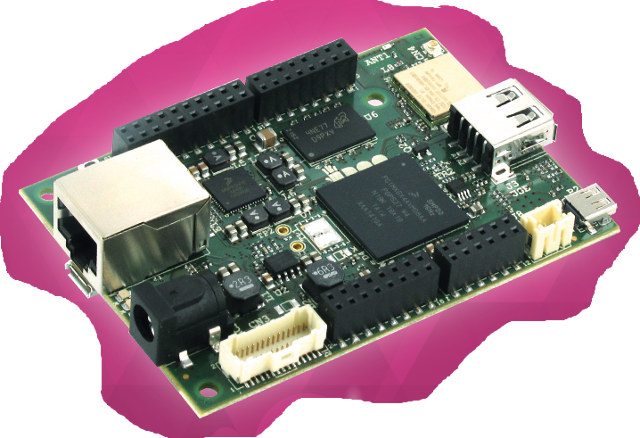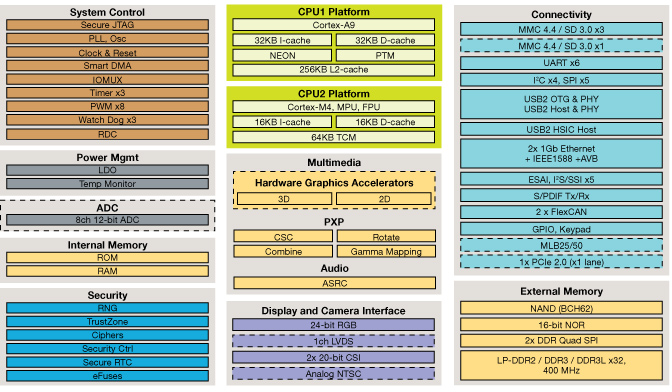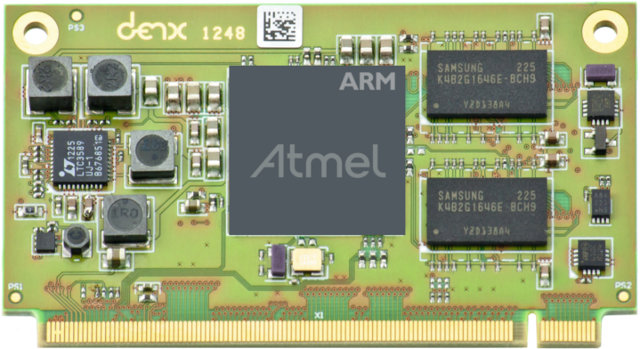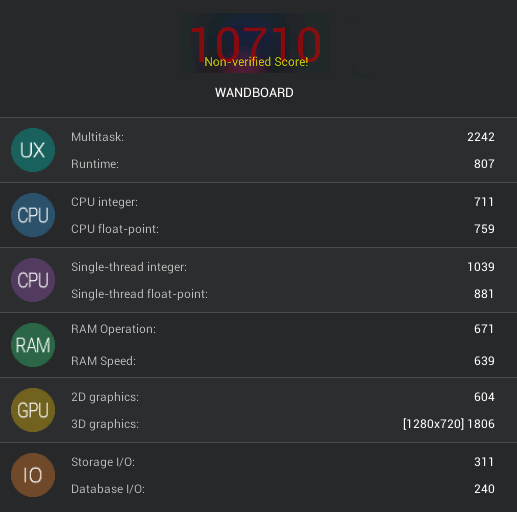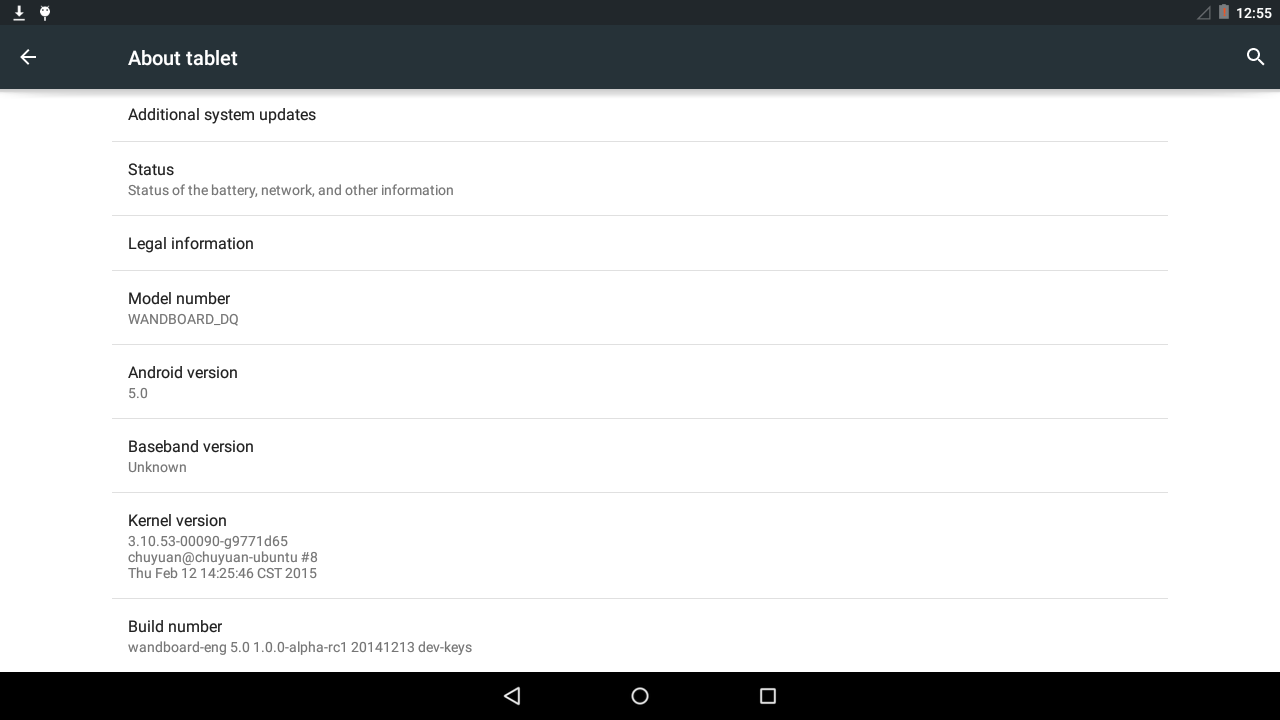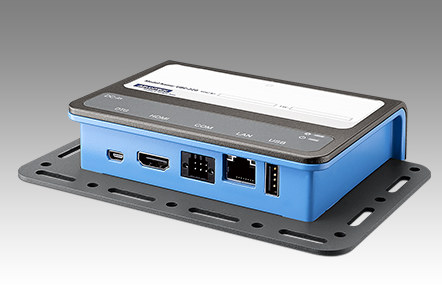UDOO boards combine a Freescale i.MX6 dual or quad core processor with an external Atmel SAM3X MCU that’s programmable as an Arduino board, so as Freescale has now formally announced their i.MX 6SoloX processor with a Cortex A9 core running Linux and Android, and a Cortex M4 core running MQX real-time operating systems, it was logical that the company would soon launch a low cost development board based on this heterogeneous processor. Meet UDOO Neo. UDOO Neo board specifications: SoC – Freescale i.MX 6SoloX ARM Cortex-A9 core @ 1GHz and ARM Cortex-M4 Core with 2D/3D GPU System Memory – 512MB or 1GB DDR3 (only Plus version) Storage – On-board NOR SPI Flash, micro SD slot, 8-bit SDIO interface (on headers) Video Input/Output micro HDMI port LVDS interface + touch (I2C signals) Analog camera connection supporting NTSC and PAL 8-bit Parallel camera interface (on headers) Audio – HDMI USB – 1x […]
Freescale Announces i.MX 6SoloX ARM Cortex A9 & Cortex M4 Processor
Freescale i.MX6 SoloX processor started to show up in the ARM Linux Kernel mailing list last year, and Cortex A9 + Cortex M4 processor showed up in some marketing documents, but so far all documentation was tied to a non-diclosure agreement. However, all resources are now publicly available, as the company officially launched i.MX 6SoloX processor at Embedded World 2015. Freescale i.MX 6SoloX specifications: CPU – ARM Cortex-A9 up to 1 GHz with 512 KB L2 cache, 32 KB instruction and data caches and NEON SIMD media accelerator MCU – ARM Cortex-M4 up to 200 MHz with 16 KB instruction and data caches, 64 KB TCM, MPU and FPU Memory Interface 16/32-bit DDR3-800 and DDR3L-800, 16/32-bit LPDDR2-800 SLC/MLC NAND, 62-bit ECC, ONFI2.2 2x DDR Quad SPI NOR flash, 16/32-bit NOR Flash Display and Camera Interfaces Parallel RGB LVDS 20-bit parallel CMOS sensor interface NTSC/PAL analog video input interface Multimedia GPU […]
DENX Computer Systems Introduces Atmel SAMA5D44 and Freescale i.MX6 System-on-Modules
Embedded World 2015 exhibition and conference will take place in Nuremberg, Germany on February 24-26, 2015, and we should expect interesting news related to MCU, industrial processors, and related development kits and boards next week. DENX Computer Systems has already unveiled two new SoM families with MA5D4 based on Atmel SAMA5D44 Cortex A5 processor, and M6R based on Freescale i.MX 6 Cortex A9 processors. DENX MA5D4 System-on-Module MA5D4 SoM specifications: Processor – Atmel SAMA5D44 Cortex A5 @ 528MHz with 720p hardware video decoder supporting H264/263, VP8, JPEG. System Memory – 128 – 512MB DDR2 RAM Storage – 4 – 32GB eMMC Flash (or optionally 256MB NAND Flash); 4 MB MByte SPI NOR-Flash; I/Os via 230-pin MXM2 edge connector Video Out / Display Support – HDMI. TFT controller, overlay support for image composition, resitive Touchscreen controller Camera – CMOS image sensor interface external bus A/D 25/16 bit 2x 10/100MBit Ethernet, IEEE1588 […]
Toucan-0700 HMI Panel Runs Linux or Android on Freescale i.MX6 Processors
TechNexion Toucan-0700 is an HMI (Human Machine Interface) panel based on Freescale i.MX6 modules and a baseboard following EDM standard for system-on-modules. The 7″ panel PC features the same EDM1-CF-IMX6 SoM used in Wandboard development boards, and runs various Linux distributions, as well as Android 4.3 or 4.4. Toucan-0700 specifications: SoC – Freescale i.MX6 Solo/Duallite Cortex A9 processor with Vivante GPUs (i.MX6 Dual/Quad on request) System Memory – 512MB (Solo), 1GB (Duallite) Storage – 4GB eMMC + micro SD slot Display – 7″ LCD display with LED backlight, 1024×600 resolution; 16M colors; 500 cd/m²; 4 points touchscreen Video Output – HDMI 1.4 for external display Connectivity – Gigabit Ethernet with POE function 802.3at, and optional WiFi 802.11 b/g/n + Bluetooth 4.0 (Broadcom BCM4330) USB – 1x USB 2.0 host port, 1x USB OTG 3.0 connector, 2x internal pin headers Serial – 1x RS-232 (galvanic isolated), 1x RS-232/422/485 (galvanic isolated), 2x […]
Android 4.1 vs Android 5.0 Performance Comparison
Most of the time people compare the performance of different hardware platforms, but since Wandboard released an Android 5.0 image in the last few days, I wondered what difference two years of software development may make by comparing benchmark results. So I ran both Antutu 5.6.1 and Vellamo 3.1 on Android 4.1.2 Jelly Bean (android-4.1.2-wand-dual-20130411.zip) and the latest Android 5.0 Lollipop firmware for Wandboard Dual (Freescale i.MX6 Dual) development board. Android 4.1.2 Benchmark Results Antutu 5.6.1 Vellamo 3.1 You’ll notice the yellow triangle on the top right corner of the multicore and browser results due to some warning related to missing CPU frequency information, and a DOM timeout. Android 5.0 Benchmark Results Antutu 5.6.1 The 2D graphics looked weird at some point as it zoomed out on1/4 of the display. The screenshot did not show the total score, so I added it manually to the picture above. Vellamo 3.1 Vellamo […]
Android 5.0 Lollipop Image for Wandboard Development Boards
Wandboard Solo, Dual and Quad are development boards powered by Freescale i.MX6 Solo, Dual, and Quad, that have been launched in 2013. I can remember running Android 4.1.2 and Ubuntu on both Wandboard Dual and Wandboard Quad. Fast forward to 2015, the board is still supported, and Android 5.0 Lollipop beta has been released for the three boards, making these one of the few hardware platforms supporting Android Jelly Bean, KitKat, and Lollipop. You can try it out by downloading the image, and flashing it to a micro SD card (8GB or more) as follows: Linux
|
1 2 3 |
wget http://www.wandboard.org/images/downloads/wandboard-lp-5.0.0-20150213-sdcard-boot.img.xz xz -d wandboard-lp-5.0.0-20150213-sdcard-boot.img.xz sudo dd if=wandboard-lp-5.0.0-20150213-sdcard-boot.img | pv | sudo dd of=/dev/sdX bs=16M |
Where X is the letter for your micro card which can be found with lsblk command Windows – Download wandboard-lp-5.0.0-20150213-sdcard-boot.img.xz, extract it, and flash to the the micro SD with Win32DiskImager. Insert the micro SD into the micro SD slot on the CPU board, and enjoy! At least in theory… If you have […]
Advantech UBC-220 Freescale i.MX6 RISC Compact Box Is Made for Wall-Mounting
If somehow you need a fanless ARM Linux / Android computer with lots of mounting holes, Advantech UBC-220 might be what you are looking for. The company’s “Freescale i.MX6 RISC Compact Box” features a Freescale i.M6 Solo or DualLite processor with up to 1GB RAM, 4GB eMMC, Gigabit Ethernet, HDMI and LVDS, a COM port, and more. Product specifications: SoC – Freescale i.MX6 Solo/DualLite up to 1GHz with Vivante GPU System Memory – 512MB to 1GB DDR3 @ 1066 MHz Storage – 4GB eMMC for OS, 4MB SPI flash for Advantech bootloader, 1x SD card slot Video Output / Display – 1x HDMI, 1x 18/24-bit LVDS Connectivity – Gigabit Ethernet (limited to 470Mbps due to i.MX6 internal limitation). Optional 3G/Wi-Fi via mini-PCIe slots. External antenna connector included. USB – 1x USB 2.0 type A, 1x micro USB 2.0 OTG Serial – 1x 4-wire UART Expansion 1x full size mini PCIe […]
Linux 3.19 Release – Main Changes, ARM and MIPS Architectures
Linus Torvalds released Linux Kernel 3.19 yesterday: So nothing all that exciting happened, and while I was tempted a couple of times to do an rc8, there really wasn’t any reason for it. Just as an example, Sasha Levin used KASan and found an interesting bug in paravirtualized spinlocks, but realistically it’s been around forever, and it’s not even clear that it can really ever trigger in practice. We’ll get it fixed, and mark it for stable, and tempting as it was, it wasn’t really a reason to delay 3.19. And the actual fixes that went in (see appended shortlog) were all fairly small, with the exception of some medium-sized infiniband changes that were all reverting code that just wasn’t ready. So it’s out there – go and get it. And as a result, the merge window for 3.20 is obviously also now open. Linus Linux 3.18 improved performance of […]


